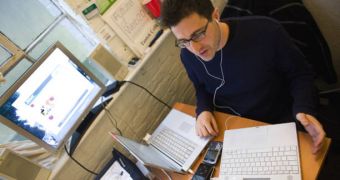In modern-day society, multitasking is one of those traits that are encouraged at the workplace and in private life, in spite of the fact that no one really knows what its effects are in the long run. It is only now that scientists are beginning to analyze the implications of this phenomenon, in several benchmark studies, whose results have been only recently published. They show that people who multitask are significantly worse in situations requiring focus and attention than their not-multitasking peers.
In the recent studies, experts analyzed the behavior of students who were engaged in a large number of activities at the same time, such as answering instant messages, using their e-mail, speaking on their phone, holding video-conferences, and reading web text. In tests that required a great level of attention and focus, they fared significantly worse than their peers who were not distracted by that many actions done at the same time. Even participants themselves admitted that performing so many tasks all at once had modified the way they thought, and left them permanently and mildly distracted.
Several studies concentrated on the influence that doing their homework in front of the TV had on children's homework abilities. They discovered a clearly negative correlation between the two, and urge parents not to allow their children to solve their math problems while also watching TV shows. The same investigations also showed that office workers nearly doubled their productivity when they were not too busy checking their e-mails every five minutes, unless, of course, that was their job.
“We wanted to ask a different question. What happens to people who [are] multitasking all the time?” Stanford University cognitive scientist Clifford Nass, who has led another study on the behavior, says. He and his team selected 19 students who multitasked a lot and 22 who did not, and compared them in a test that required the participants to focus on a single area of interest. The first group performed poorer, being unable to concentrate on the task at hand.
The team now plan to continue their investigations, with the help of brain-imaging technologies, which could provide a clearer insight into exactly what it is that prevents a multitasking brain from focusing on a single objective, Wired reports. Nass' study appears in the latest issue of the journal Proceedings of the National Academy of Sciences.

 14 DAY TRIAL //
14 DAY TRIAL //